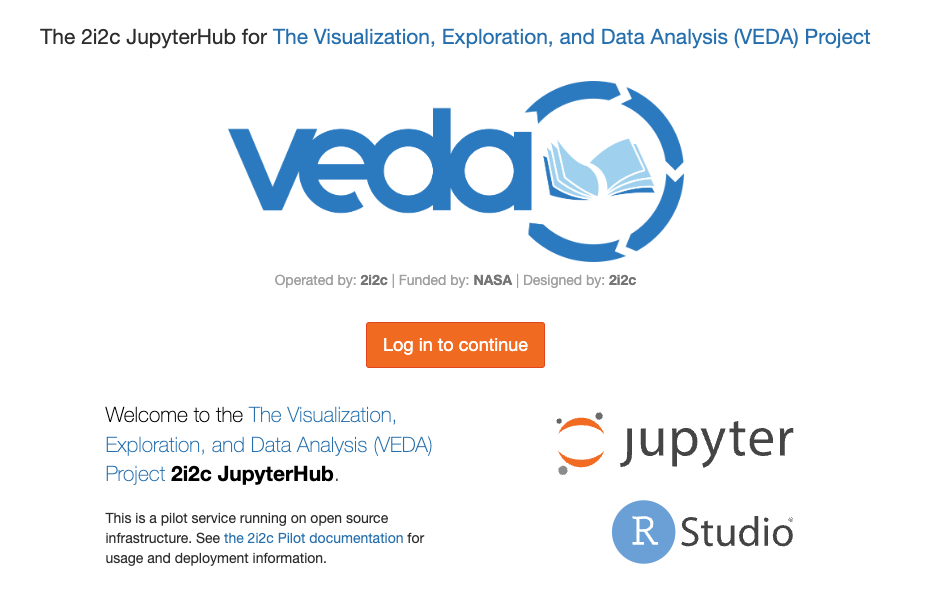Scientific Computing
Goals
VEDA scientific computing services provide scientists with the resources they need to develop (interactively) and execute (operationally) algorithms for geospatial data science and scalable computing, and to support open science by giving all users access to sufficient resources and tools to do science and replicate scientific results. This approach includes:
- Identifying and configuring interactive, collaborative science environments (e.g., Jupyter notebooks) for advanced data exploration and prototyping new products
- Providing frameworks for cloud-native simulation modeling and data assimilation
- Improving technologies for dynamic scaling and operationalization of product generation workflows
- Providing managed resources for data analysis in the cloud
Collaborative and Interactive Data Science with JupyterHub
VEDA promotes the use of JupyterHub environments for interactive data science. JupyterHub enables you to analyze massive archives of Earth science data in the cloud in an interactive environment that alleviates the complexities of managing compute resources (virtual machines, roles and permissions, etc).
VEDA Sponsored JupyterHub service
Users affiliated with VEDA can get access to a dedicated JupyterHub service, provided in collaboration with 2i2c: hub.openveda.cloud. Please find instructions for requesting access below.
If you are a scientist affiliated with NASA projects such as EIS and MAAP, you can also keep using the resources provided by these projects.
Through the use of open-source technology, we make sure our services are interoperable and exchangeable.
VEDA JupyterHub is provided in collaboration with 2i2c.org and feature development on VEDA benefits the large community of open-source JupyterHub users.
Public VEDA Trial Hub service (Binder)
Some of our tutorial notebooks do not require direct data access or substantial CPU or memory resources. These can also be executed interactively in the open access VEDA Trial Hub (Binder) service, a copy of MyBinder.
Please note that resources in the Binder services are restricted and that your data is not stored between sessions. Any changes you make will be discarded when your session ends.
Instructory notebooks
This documentation site provides Jupyter notebooks on how to load and analyze Earth data an interactive cloud computing environment.
Getting access to VEDA’s JupyterHub environment
Please see Getting Access.

